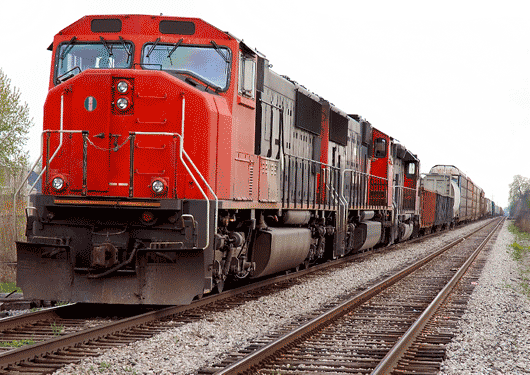
Visit Our Sponsors |
|
|
|
|
|
|
|
|
|
|
|
|
|
|
|
|
|
|
|
|
|
|
|
|
|
|
|
|
|
|
|
|
|
|
|
|
|
|

Since trains play a growing role in getting oil from landlocked North Dakota and central Canada to mostly coastal refineries, efforts to stop them could boost shipping costs or slow the pace of North America's oil boom.
Efforts to stop oil trains are a new battle front for several major environmental groups that have campaigned to block the Keystone XL pipeline from bringing crude south from Canada's oil sands. With Keystone in limbo, U.S.-bound rail shipments of Canadian oil have risen twenty-fold since 2011, the U.S. Congressional Research Service estimated.
With U.S. oil production at a 28-year high, new pipelines in booming shale areas like North Dakota's Bakken have not kept up. This has also pushed more crude onto trains.
Opposition movements have scored a few small victories. The Port of Portland, Oregon, issued a blanket rejection of any proposals for crude oil transfer or storage facilities, and California, Washington and New York are among states reviewing oil-train safety.
RELATED CONTENT
RELATED VIDEOS
Timely, incisive articles delivered directly to your inbox.

